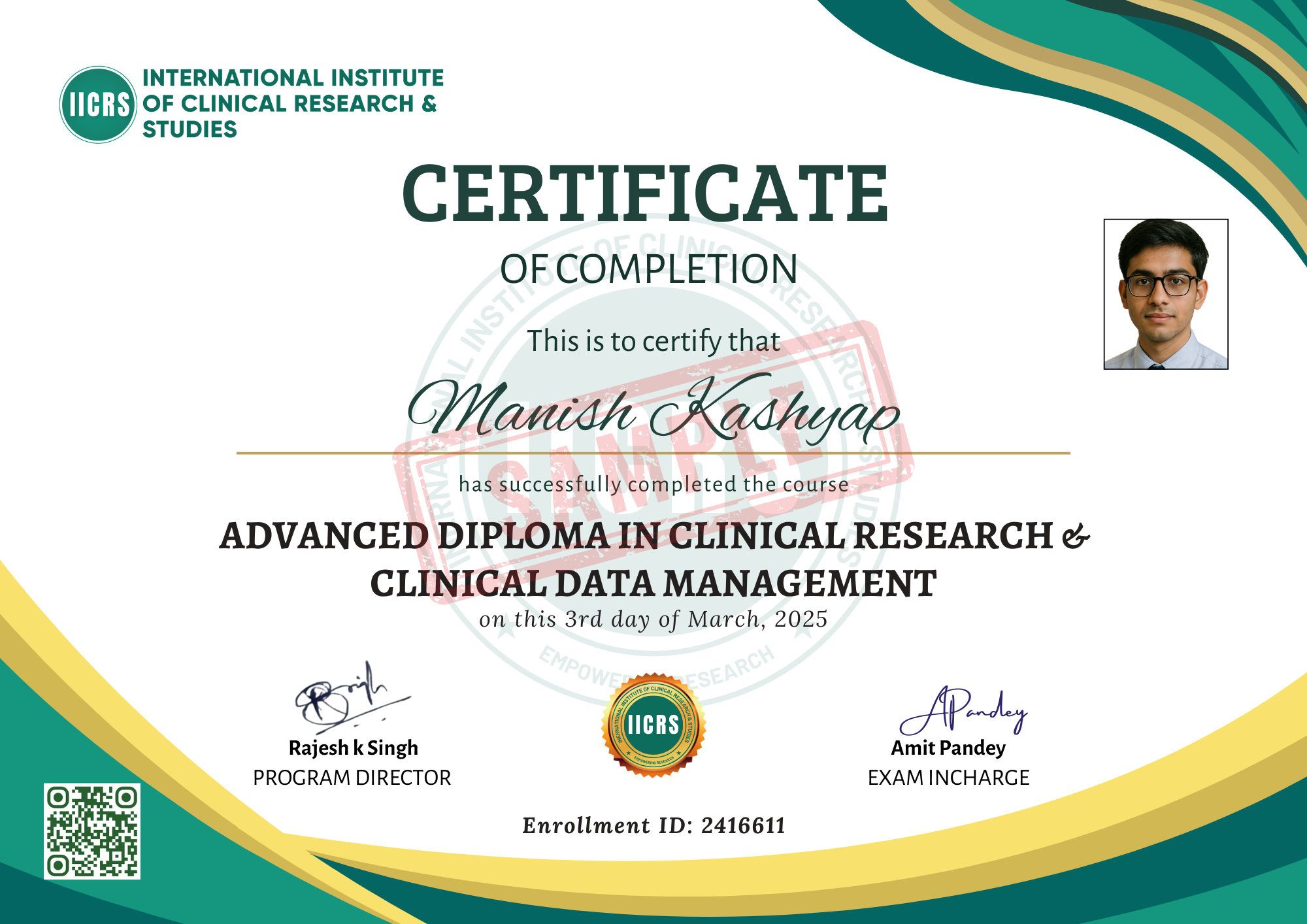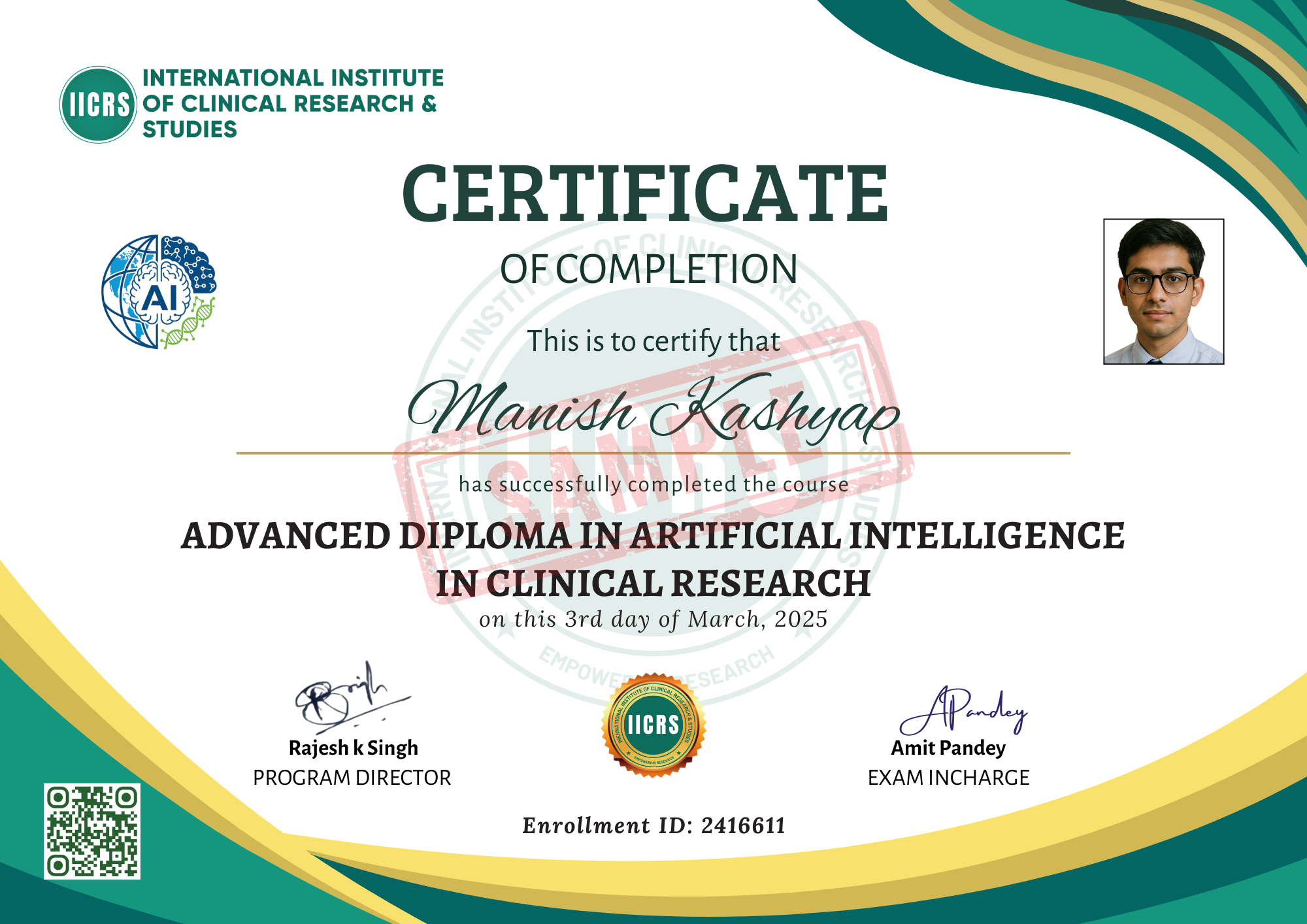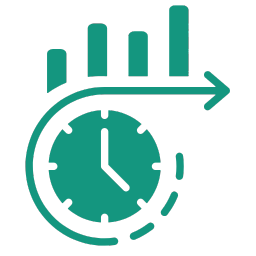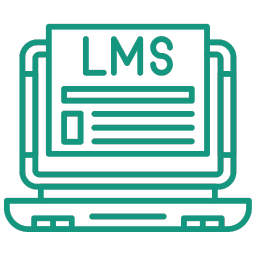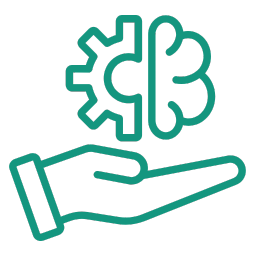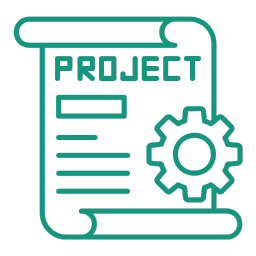Q. Why is IICRS considered the best online Clinical Data Management (CDM) course provider?
IICRS is a premier Clinical Data Management (CDM) online course provider due to its global-standard curriculum, practical hands-on training, and real software access. The institute offers a comprehensive, job-oriented program with experienced industry trainers, ensuring students gain essential skills for a successful career in clinical research and data management worldwide. Their focus on global market requirements and job-aligned content makes them a top choice for aspiring professionals.
Q. What makes the IICRS curriculum the most advanced in the industry, particularly with its focus on AI in Clinical Research?
The IICRS curriculum is at the forefront of the industry by integrating Artificial Intelligence (AI) in clinical research. The advanced course includes modules on AI, ML, NLP, Computer Vision & generative AI, such as ChatGPT and Google Gemini, demonstrating how these technologies optimize clinical trial processes, enhance data analysis, and improve decision-making. This forward-thinking approach prepares students for future challenges and high-demand roles in the global clinical research industry.
Q. How does IICRS ensure a high placement success rate for its students?
IICRS ensures a high placement success rate through its 100% placement support program. This includes thorough pre-placement training, resume building, soft skills development, and mock interviews. The institute leverages its strong industry network to connect graduates with leading pharmaceutical companies and CROs, providing students with ample opportunities to secure their desired job in clinical data management across USA, Europe, India, Africa and the Middle East.
Q. Can I expect the same quality of learning from an IICRS online course as I would from a physical class?
Yes, the IICRS online course model is designed for a superior learning experience. It combines live, interactive e-learning sessions with self-paced digital resources, offering unmatched flexibility and convenience. Students receive personalized attention from expert instructors, engage in real-time discussions, and gain practical training on industry-standard software, ensuring they acquire the same high-quality knowledge and skills as a traditional classroom setting. In many cases, it's better. Online learning gives you unparalleled access to the best industry trainers and experts worldwide, an opportunity that is often limited by location in traditional physical classes. This global network enriches your learning and sets you up for international career success.
Q. What are the key benefits of choosing IICRS's online learning model over traditional, in-person classes?
IICRS's online learning model offers significant benefits, including the freedom to learn from anywhere in the world (USA, UK, Europe, India, Africa, or Middle East). It provides a flexible schedule, saves travel and relocation costs, and gives students more control over their learning journey. The digital format facilitates seamless access to course materials, expert mentorship, and a global learning community, making it the modern, convenient choice for career advancement.
Q. How do IICRS's international internship opportunities from the USA set it apart from other institutes?
IICRS provides an unparalleled international internship opportunity with USA based Life Science Company, which is a unique advantage for global career seekers. This program allows students to gain valuable real-world experience, work on global projects, and understand international standards and regulations. This practical exposure significantly boosts their global employability and sets them apart in the competitive clinical research job market in USA, Europe, Africa, Asia, & Middle-East Countries.
Q. What kind of placement support does IICRS provide to its students after course completion?
After course completion, IICRS offers comprehensive placement support, including career counseling and job search assistance. The institute helps students with interview preparation and connects them to its vast network of hiring partners. This robust placement program is designed to provide dedicated support to every student, helping them transition smoothly from the program to a successful entry-level job in clinical data management.
Q. Are the trainers at IICRS industry experts? What is their experience level?
Yes, the trainers at IICRS are seasoned industry experts with extensive professional backgrounds. They bring over 10 years of experience from leading pharmaceutical companies and CROs, offering students invaluable insights and practical knowledge. Their mentorship is crucial for the job-oriented training approach, ensuring students learn the most current and relevant skills needed to succeed in clinical trial management globally.
Q. Is the IICRS Clinical Data Management certification recognized globally?
The IICRS Clinical Data Management certification is highly valued and recognized globally due to its industry-aligned curriculum and focus on international standards. The program is designed by senior professionals and covers essential competencies required by multinational pharmaceutical companies and CROs in USA, Europe, Africa, Middle East and India. This recognition enhances a graduate's global career opportunities and credibility in the clinical research industry.
Q. How does IICRS's course fee compare to the value and career opportunities it provides?
The IICRS course fee provides exceptional value for the career opportunities it unlocks. The institute offers flexible payment plans, making quality education accessible. Compared to the potential high salary and stable career growth in the global clinical research sector, the investment is modest, and the returns are significant, ensuring a strong return on investment for students in India, Africa, S.E Asia and across the World.
Q. What is the Clinical Data Management course at IICRS?
The Clinical Data Management course at IICRS is an advanced program designed for professionals and students seeking a rewarding career in clinical research. It provides comprehensive training on the entire clinical data lifecycle, from data collection and validation to database lock. The course integrates theoretical knowledge with practical, hands-on software training, preparing students for job roles in the rapidly growing pharmaceutical and healthcare industries.
Q. What are the key skills and topics covered in the IICRS CDM course?
The IICRS CDM course covers key skills and topics essential for a data management professional, including electronic data capture (EDC), case report form (CRF) design, data validation, and medical coding using MedDRA. The curriculum also includes essential training on AI in clinical trials, data privacy, ICH-GCP guidelines, and quality assurance, ensuring students are well-versed in both technical and regulatory aspects.
Q. Is the IICRS Clinical Data Management course suitable for a beginner?
Yes, the IICRS Clinical Data Management course is specifically designed for beginners with no prior experience. The program provides a strong foundation in clinical research principles and gradually builds up to advanced data management techniques. It is suitable for life science, pharmacy, and medical graduates who wish to start a new, promising career path with a comprehensive and job-oriented training program.
Q. What are the eligibility criteria to enroll in the IICRS CDM course?
To enroll in the IICRS CDM course, candidates should hold a degree in life sciences, pharmacy, medicine, or a related field. The program is also open to graduates with a background in biotechnology, microbiology, or nursing. The core eligibility is a passion for a career in clinical research and a desire to gain advanced skills in data management, regardless of their location, from USA, Europe, Africa, Middle East to India.
Q. What is the total course duration for the IICRS Clinical Data Management program?
The total duration for the IICRS Clinical Data Management program is designed to be comprehensive yet time-efficient for working professionals and students. The program typically runs for a specific number of weeks or months, combining instructor-led live sessions and self-paced study modules. Contact the admissions team or check the brochure for specific program duration details.
Q. How can I apply for the IICRS Clinical Data Management course?
You can easily apply for the IICRS Clinical Data Management course by visiting the official IICRS website and filling out the online application form. Our admissions team will then contact you to guide you through the enrollment process, including document submission and fee payment. This streamlined process ensures a quick and hassle-free registration for students from India and other global locations.
Q. What is the fee structure for the IICRS Clinical Data Management course?
The fee structure for the IICRS Clinical Data Management course is competitive and reflects the high value of the specialized training. The course fee includes access to live sessions, study materials, hands-on software training, and comprehensive placement support. For detailed fee information and payment options, please contact our admissions office or refer to the course brochure on the website.
Q. Are there any installment or payment plan options available for the course fee?
Yes, IICRS provides flexible payment options to make quality education more accessible. You can choose from various installment plans. This makes it easier for students to manage their finances without the burden of upfront payment, allowing them to focus on their clinical data management training.
Q. Does IICRS offer a refund policy if I decide to withdraw from the course?
Yes, IICRS has a transparent refund and cancellation policy. Students are eligible for a full refund if they cancel their enrollment before the course officially begins, provided they have not accessed any course materials. For specific details on the refund process, conditions, and deadlines, it is essential to review the official policy document on the IICRS website.
Q. What is the admission process for international students?
The admission process for international students at IICRS is straightforward and designed for global accessibility. International applicants can apply online, and our admissions team will assist them with all necessary steps, including eligibility verification, document submission, and fee payment via international transfer. This ensures a seamless enrollment experience for students from countries like the USA, Canada, and those in Europe, Africa and the Middle East.
Q. What is the international internship from the USA, and how can I get selected for it?
The IICRS international internship is a unique program offering hands-on experience with a USA-based company. This gives students invaluable exposure to global work standards and clinical trials. Selection is highly competitive and based on a student's academic performance, interview skills, and overall engagement throughout the course. This opportunity is designed to significantly enhance a graduate's resume and global career prospects.
Q. How does the international internship enhance my career prospects?
An international internship provides a crucial competitive edge. It demonstrates a graduate's ability to work in a global, diverse environment and understand international regulatory landscapes like those in the USA and Europe. This experience makes you a highly attractive candidate to global pharmaceutical companies and CROs, boosting your job prospects and opening doors to a successful career in clinical research and data management worldwide.
Q. Does IICRS provide assistance with visa and other documentation for the international internship?
For the online international internship with a USA company, no visa is required as the entire program is completed remotely. However, if you are selected for a physical internship abroad, IICRS provides comprehensive guidance on the visa application process and other documentation. While the final responsibility for visa approval lies with the individual, our dedicated support team offers assistance to help you navigate the complexities of international travel and internship arrangements.
Q. What is the scope of placement support offered by IICRS?
IICRS offers robust and dedicated placement support to help every student secure a job. This includes career counseling, resume optimization, and extensive interview preparation with mock interviews. We have strong partnerships with leading companies in India, USA, Europe, Africa and the Middle East. Our team works tirelessly to match students with the right job opportunities, ensuring they are well-prepared for the competitive job market.
Q. How does IICRS prepare students for job interviews?
IICRS prepares students for job interviews through a multi-faceted approach. We conduct a series of mock interviews with industry experts to simulate real-world scenarios. Our training focuses on technical questions related to Clinical Data Management, and we also provide guidance on soft skills and professional conduct. This comprehensive training ensures graduates feel confident and are ready to ace their interviews with top employers.
Q. Does IICRS guarantee a job after completing the course?
While IICRS does not offer a job guarantee, it is committed to providing 100% placement support. Our program is designed to equip students with the most in-demand skills and knowledge needed to excel. The institute's track record demonstrates a high success rate in helping graduates find suitable jobs within the clinical research industry due to our strong industry network and comprehensive training.
Q. What is the average starting salary for an IICRS graduate in Clinical Data Management?
The average starting salary for a Clinical Data Management professional varies significantly by location and company. For an IICRS graduate starting their career, the salary in India typically ranges from ₹3 to ₹4.5 lakhs per annum. For those pursuing global opportunities, salaries can be significantly higher: In the USA, a starting salary generally falls between $50,000 and $70,000 USD annually. In Europe, the range is typically €30,000 to €45,000 per year. For the Middle East and Africa, starting salaries can range from $25,000 to $45,000 USD, depending on the country and company.
Q. Are there any specialized courses on AI in Clinical Research at IICRS?
Yes, IICRS offers a specialized Advanced Diploma in Artificial Intelligence in Clinical Research. This advanced course is designed to provide students with an in-depth understanding of how AI technologies, including machine learning and natural language processing, are revolutionizing clinical trials. The curriculum focuses on practical applications, making students job-ready for the future of the life sciences industry.
Q. How is the AI in Clinical Research course integrated into the CDM curriculum?
The AI in Clinical Research course is an integrated component of the IICRS Clinical Data Management program, providing a modern, forward-thinking curriculum. This integration teaches students how to use AI tools for tasks like automated data extraction, intelligent data cleaning, and predictive analytics. This ensures that graduates are not only proficient in traditional CDM processes but also skilled in cutting-edge AI technologies.
Q. Does IICRS provide an EDC (Electronic Data Capture) database for hands-on practice?
Yes, IICRS provides access to Electronic Data Capture (EDC) databases for extensive hands-on practice. Students learn to work with industry-standard software and tools, simulating real-world clinical trial scenarios. This practical exposure is critical for understanding the entire data management lifecycle and for building the technical skills required by employers in India, Europe, Africa, the Middle East and the USA.
Q. What are the entry-level job roles available in Clinical Data Management?
The most common entry-level job roles in Clinical Data Management include Clinical Data Associate, Clinical Data Coordinator, and Data Entry Specialist. These positions are ideal for fresh graduates and serve as a foundation for a long-term career in clinical research. They focus on essential tasks like data entry, query management, and ensuring data integrity under expert supervision.
Q. What is the role of a Clinical Data Manager?
The role of a Clinical Data Manager is to oversee the entire data management lifecycle for a clinical trial. This includes developing the Data Management Plan (DMP), designing Case Report Forms (CRFs), managing the EDC system, and ensuring the data is clean, accurate, and compliant with regulatory standards. They are critical for ensuring the integrity of the data used for regulatory submissions.
Q. What is the job description of a Clinical Data Coordinator?
A Clinical Data Coordinator works under the supervision of a Clinical Data Manager to support the daily operations of a clinical trial. Their responsibilities include data entry, performing data quality checks, and resolving data discrepancies by raising and tracking data queries. This role is a perfect starting point for building foundational skills in data management and clinical research.
Q. What is a Clinical Data Analyst, and what skills are required for this role?
A Clinical Data Analyst collects, organizes, and interprets large datasets from clinical trials to provide meaningful insights. Key skills for this role include proficiency in statistical analysis tools like SAS, R, and Python, as well as a strong understanding of clinical data management processes and data standards. This role is crucial for making data-driven decisions in drug development.
Q. What are the common job titles in Clinical Data Management?
Common job titles in Clinical Data Management include Clinical Data Manager, Clinical Data Coordinator, Clinical Data Analyst, Data Validation Specialist, and Clinical Database Programmer. As professionals gain experience, they can progress to senior roles like Team Lead or CDM Project Manager, all of which are in high demand across the global pharmaceutical industry.
Q. What are the top skills required to become a successful Clinical Data Manager?
To become a successful Clinical Data Manager, you need a blend of technical and soft skills. Top requirements include expertise in EDC systems, knowledge of regulatory guidelines (ICH-GCP), data validation techniques, and a strong understanding of the clinical trial process. Essential soft skills include attention to detail, strong communication, and problem-solving abilities.
Q. Do I need to have a background in medicine or life sciences to pursue a CDM career?
Yes, a background in medicine or life sciences is generally a prerequisite for a career in Clinical Data Management. This includes degrees in Pharmacy, Life Science, Medical, B.Sc., M.Sc., or related fields. This foundational knowledge is crucial for understanding the medical terminology, patient data, and regulatory framework of clinical research. The IICRS program is designed to bridge the gap between academic knowledge and industry demands.
Q. What is the average starting salary for a CDM professional in India?
The average starting salary for a CDM professional in India is approximately ₹3 to ₹4.5 lakhs per annum. This can vary depending on the city, company, and specific job role. With experience, a professional can see significant salary growth, with mid-level salaries ranging from ₹6 to ₹10 lakhs annually. The demand for skilled clinical data professionals in India continues to grow steadily.
Q. How does the salary for a Clinical Data Manager progress with experience?
The salary of a Clinical Data Manager progresses significantly with experience, making it a highly lucrative career path with strong global opportunities. In India: An entry-level professional can expect a salary of ₹3-4.5 lakhs per annum. With 3-5 years of experience, a mid-level manager can earn ₹6-10 lakhs, while a senior manager with over 10 years of experience can command ₹15-20 lakhs annually. In the USA: A starting salary is typically $50,000-$70,000 USD. With 3-5 years of experience, this can rise to $80,000-$110,000 USD. Senior-level professionals often earn $120,000+ annually. In Europe: An entry-level professional can expect €30,000-€45,000 per year. A mid-level professional with 3-5 years can earn €50,000-€75,000, with senior roles commanding €85,000+. In the Middle East: Starting salaries range from $25,000-$45,000 USD. With 3-5 years of experience, professionals can earn $45,000-$70,000, and senior roles can exceed $80,000 annually. This robust career progression is a key reason why Clinical Data Management is a highly attractive field globally.
Q. What is the career growth path for a professional in Clinical Data Management?
The career growth path for a CDM professional is well-defined. An entry-level role as a Data Coordinator can lead to a Clinical Data Manager position after a few years. From there, you can advance to a Senior Data Manager, then to a Team Lead or Project Manager. Further progression can lead to leadership roles like Associate Director or Director of Clinical Data Management, with global opportunities in USA and Europe.
Q. What is the difference between a Clinical Data Manager and a Clinical Research Associate?
A Clinical Data Manager focuses on the technical aspects of data management, including data collection, cleaning, and database design. In contrast, a Clinical Research Associate (CRA) is responsible for monitoring clinical trials at the site level, ensuring compliance with protocols and regulations. While both are critical roles, the CDM is an office-based role focused on data integrity, whereas the CRA is often field-based, with a focus on site oversight.
Q. How does the IICRS course help me develop the most in-demand skills?
The IICRS course is designed to be highly job-oriented. Its curriculum covers both fundamental clinical research principles and advanced data management techniques. The program's blend of theoretical knowledge with extensive hands-on training using industry-standard software helps students develop practical skills. This comprehensive approach ensures graduates are proficient in EDC systems and data standards, preparing them for the most sought-after jobs in the industry.
Q. Which companies hire Clinical Data Managers?
A wide range of organizations hire Clinical Data Managers. These include pharmaceutical and biotech companies, Contract Research Organizations (CROs), medical device firms, and academic research institutions. Top employers often have a global presence, with career opportunities available in USA, Europe, India, Africa and the Middle East. Some examples include IQVIA, Labcorp, Novartis, and Syneos Health.
Q. Is a career in Clinical Data Management stable and in-demand?
Yes, a career in Clinical Data Management is highly stable and in-demand. The continuous need for new drug development and medical innovation ensures a steady requirement for skilled CDM professionals. As the industry increasingly relies on complex data, the need for experts who can ensure data quality and integrity is constant, making this a secure and rewarding career choice with excellent growth prospects.
Q. What is the future scope of a career in CDM?
The future scope of a CDM career is extremely promising. The industry is rapidly evolving with the adoption of AI, Decentralized Clinical Trials (DCTs), and Big Data. This shift requires a new generation of data managers who are skilled in advanced analytics and technology. A CDM professional can look forward to opportunities in roles related to AI analytics, data science, and project management.
Q. How does a course from IICRS prepare me for a global career?
The IICRS curriculum is built on international standards like ICH-GCP, making it globally relevant. The course provides hands-on experience with global software and tools. Additionally, the option for an international internship from the USA gives students invaluable cross-cultural experience. This training and exposure are key to securing a global career in clinical research, whether in USA, Europe, Africa, the Middle East or India.
Q. What role does a Database Programmer play in a clinical trial?
A Database Programmer is responsible for designing, building, and maintaining the clinical trial database. They write code for edit checks and data validations to ensure the accuracy and consistency of the collected data. Their work is critical for creating a reliable database that is ready for analysis and regulatory submission, a vital task in the data management lifecycle.
Q. Do I need to learn SAS programming for a CDM career?
While SAS programming is not a mandatory skill for all CDM roles, it is a highly valuable asset. Knowledge of SAS is particularly beneficial for positions that involve data reporting, statistical analysis, and generating datasets for regulatory submissions. The IICRS curriculum provides training in Clinical SAS, giving graduates a competitive advantage in a global job market that values a blend of data management and programming skills.
Q. How important are communication and soft skills in this field?
Communication and soft skills are extremely important in Clinical Data Management. A CDM professional must effectively communicate with various stakeholders, including project managers, investigators, and other research teams. Strong communication is essential for resolving data discrepancies, collaborating on a CDM plan, and preparing clinical study reports. These skills are key to a successful and long-term career.
Q. How does the IICRS program's hands-on training benefit my job application?
The IICRS program's hands-on training is a significant benefit for a job application. It demonstrates to potential employers that you have practical experience with EDC systems and other industry software, rather than just theoretical knowledge. This practical expertise sets you apart from other candidates and shows that you can hit the ground running, making you a more valuable asset in the job market.
Q. Can I get a job with a certificate from an online course?
Yes, a certificate from an online course like the one offered by IICRS is widely accepted by employers. In today's industry, skills and practical knowledge are valued over the mode of learning. With IICRS's hands-on approach, industry-aligned curriculum, and strong placement support, a graduate with a certification is well-equipped and highly desirable for entry-level jobs in the clinical research sector.
Q. Can a CDM professional work in a pharmaceutical company, a CRO, or a hospital?
Yes, a CDM professional can work in a variety of settings. They are highly sought after by pharmaceutical and biotech companies, Contract Research Organizations (CROs), medical device firms, and academic research institutions, including hospitals. This versatility offers diverse career paths and job opportunities in India, USA, Europe, Africa and the Middle East.
Q. How does the course prepare you for an in-house or remote work environment?
The IICRS course prepares students for both in-house and remote work environments by providing training on industry-standard software, communication tools, and project management skills. The online format itself mirrors a remote work environment, giving students the experience of collaborating and managing tasks digitally. This prepares them for the modern, flexible workplace in clinical research.
Q. Does IICRS offer any scholarships or financial aid to students?
To ensure clinical research training is accessible to all, IICRS offers a range of flexible payment plans. We also provide special scholarships specifically designed for students in India, Africa, and Southeast Asia, making it easier for talented individuals in these regions to pursue a lucrative career in clinical data management without financial barriers.
Q. What does the course fee for the IICRS program include?
The IICRS course fee is comprehensive and includes access to live online classes, all learning materials, hands-on training on industry-standard software, and participation in live projects. It also covers the final examination fee, dedicated placement support, and career counseling, ensuring students receive full value from their investment for a successful career in clinical research.
Q. What specific documents are required for the IICRS admission process?
To complete the IICRS admission process, prospective students must submit copies of their educational certificates, government-issued photo ID, proof of address, and a passport-sized photograph. These documents are verified to confirm eligibility for the program, which is designed for life science, medical, and pharmacy graduates seeking a specialized career in clinical data management.
Q. How long does the IICRS admission process typically take?
The IICRS admission process is designed to be efficient and swift. After submitting the quick query form, a student can expect a prompt counseling session with an admissions officer. Once the required documents are submitted and reviewed, and the admission fee is paid, the entire process can be completed in a few business days, allowing students to begin their online clinical research course without delay.
Q. How can I contact IICRS for career counseling or to clarify doubts?
You can easily contact IICRS for career counseling or any queries. They have a dedicated student support team accessible via a global contact number, email, or their website's live chat. This direct line of communication ensures that students, whether in India, USA, Europe, Africa or the Middle East, receive personalized guidance and support throughout their learning journey and for their career in clinical research.
Q. Does IICRS have a physical presence or regional contact points for international students?
IICRS primarily operates through a robust online platform, making its programs accessible to students from anywhere in the world. While their main office is in USA & New Delhi, India, their digital presence effectively serves as a regional contact point for students in Africa, the Middle East, and Europe. This model provides convenience and flexibility to a global student body.
Q. How do IICRS's alumni success stories prove its effectiveness?
IICRS's alumni success stories are a testament to the institute's effective training and placement support. Graduates have secured high-paying jobs in clinical data management and clinical research with leading global CROs and pharmaceutical companies. These testimonials highlight how the hands-on, job-oriented curriculum directly translates to career success and strong professional growth for students worldwide.
Q. What kind of technological platform does IICRS use for online classes?
IICRS utilizes an advanced e-learning platform for its online classes. The platform supports live, interactive sessions, provides access to a comprehensive library of digital course materials, and hosts dedicated forums for student-to-instructor communication. This technology-driven approach ensures a seamless and engaging learning experience, preparing students for the modern, digital landscape of clinical research.
Q. What makes IICRS's trainers more effective than others in the industry?
IICRS's trainers are not just educators; they are seasoned industry experts with over a decade of real-world experience. Their effectiveness stems from their ability to combine academic knowledge with practical insights and case studies. They are passionate mentors who guide students with personalized attention, ensuring every graduate is well-prepared for the technical and soft skills required in a CDM professional role.
Q. How does IICRS's commitment to ethical practices set it apart from other institutes?
IICRS's commitment to ethical practices is a core part of its mission. The curriculum emphasizes the importance of ICH-GCP guidelines and ethical conduct in all aspects of clinical data management. By training students in data integrity principles like ALCOA, IICRS ensures that its graduates are not only skilled but also ethically grounded, which is a highly valued trait by employers in the global clinical research industry.
Q. What are the major trends shaping the Clinical Data Management industry today?
The major trends shaping the Clinical Data Management industry include the integration of Artificial Intelligence (AI) and Machine Learning (ML), the rise of Decentralized Clinical Trials (DCTs), and an increasing focus on Real-World Evidence (RWE). Other key trends are the use of wearable devices for data collection, the implementation of blockchain for data security, and the adoption of cloud-based platforms for global collaboration.
Q. How is Artificial Intelligence (AI) being used in Clinical Data Management?
Artificial Intelligence is transforming Clinical Data Management by automating repetitive tasks like data entry and validation. AI algorithms can analyze vast datasets to identify patterns, predict potential data errors, and streamline data cleaning. This powerful technology enhances data quality, accelerates the data management lifecycle, and allows CDM professionals to focus on more complex, strategic tasks.
Q. How will the increasing use of AI impact the job market for Clinical Data Managers?
The increasing use of AI will not eliminate CDM jobs but rather transform them. Future CDM professionals will need to be skilled in overseeing AI-powered systems, interpreting their outputs, and managing advanced data analytics. AI will handle routine tasks, allowing data managers to focus on complex problem-solving, strategic planning, and the ethical oversight of clinical data.
Q. What is the role of Big Data and Predictive Analytics in clinical trials?
Big Data and Predictive Analytics are crucial for extracting valuable insights from the massive amount of information generated in clinical trials. These technologies can identify trends in patient populations, forecast study timelines, and predict potential risks. By analyzing large datasets, researchers can optimize trial design, improve patient outcomes, and accelerate the entire drug development process.
Q. What are Decentralized Clinical Trials (DCTs), and how do they affect CDM?
Decentralized Clinical Trials (DCTs) are a modern approach that allows patients to participate in clinical trials from home, using digital tools like telemedicine and wearable devices. For CDM, DCTs mean that data is collected from diverse, remote sources in real-time. This requires a robust CDM plan to manage data integration, ensuring the quality and integrity of information from various technologies.
Q. How is blockchain technology being used to enhance data security in clinical trials?
Blockchain technology is used to enhance data security in clinical trials by creating an unchangeable and transparent record of every data transaction. The decentralized nature of a blockchain ledger ensures that patient data and clinical records cannot be tampered with. This provides a high level of data integrity, builds trust among all stakeholders, and helps maintain regulatory compliance.
Q. What are the new regulatory requirements in the CDM industry?
New regulatory requirements in the CDM industry are focusing on greater transparency, data privacy, and the use of standardized data formats. Agencies like the FDA and EMA are mandating the use of CDISC standards like SDTM for data submissions. Furthermore, regulations like GDPR in Europe and HIPAA in the USA are driving the need for more robust data security and patient consent management.
Q. What is a "risk-based monitoring" approach in clinical research, and how does it relate to CDM?
Risk-based monitoring is a modern approach in clinical research that focuses on managing risks to data quality. Instead of a blanket approach, it prioritizes monitoring efforts on sites and data points with the highest risk of error. In CDM, this means implementing a data management plan with targeted edit checks and quality control measures to efficiently ensure the integrity of the most critical data.
Q. What is the importance of Real-World Evidence (RWE) in clinical research?
Real-World Evidence (RWE) is data collected from sources outside of traditional clinical trials, such as electronic health records and patient registries. RWE provides a more holistic view of a drug's effectiveness and safety in a real-world setting. It is increasingly important for regulatory decision-making, market access, and post-market surveillance. CDM professionals are key to managing and analyzing this diverse data.
Q. How does the shift to patient-centric models affect data collection and management?
The shift to patient-centric models is changing data collection by incorporating the patient's perspective. It emphasizes using tools like e-diaries and mobile apps for direct data entry. This approach requires CDM professionals to manage data from a wider variety of sources and formats, emphasizing the need for flexible data management plans and a strong understanding of emerging technologies.
Q. Are wearable devices and sensors influencing clinical data collection?
Yes, wearable devices and sensors are significantly influencing clinical data collection. They enable the continuous, real-time collection of data like heart rate, activity levels, and sleep patterns. This provides a more complete and objective picture of a patient's health than traditional, intermittent data collection. For CDM, this means managing an enormous volume of data and ensuring its integrity and security.
Q. What is a Clinical Data Management Plan (DMP)?
A Clinical Data Management Plan (DMP) is a foundational document that outlines how clinical data will be handled throughout the clinical trial lifecycle. It details procedures for data collection, validation, quality control, and security. A well-defined DMP is essential for ensuring the integrity, accuracy, and completeness of the data, which is crucial for a successful regulatory submission.
Q. What is the importance of a Case Report Form (CRF) in clinical trials?
A Case Report Form (CRF) is a document used to collect patient data as per the clinical trial protocol. It serves as the primary tool for data collection at the study site. The accuracy and completeness of the CRF are paramount, as the data collected within it forms the basis for the final analysis of the drug's safety and efficacy.
Q. What is the difference between a paper CRF and an eCRF (Electronic CRF)?
A paper CRF is a physical document where patient data is manually entered. An eCRF is a digital version used within an EDC system for direct electronic data capture. The eCRF is far more efficient as it includes built-in edit checks for immediate data validation, reducing manual errors and accelerating the entire data cleaning process.
Q. What is an Electronic Data Capture (EDC) system?
An Electronic Data Capture (EDC) system is a software application used to collect, manage, and store clinical trial data in electronic format. It replaces traditional paper-based methods, offering advantages like real-time data access, automated data validation, and improved data quality. EDC systems are a cornerstone of modern Clinical Data Management.
Q. What are the different types of data collected in a clinical trial?
Clinical trials collect various types of data, including patient demographics, medical history, vital signs, physical examination results, laboratory values, and adverse event information. Data also includes source information from wearable devices and other digital platforms. Clinical Data Managers are responsible for ensuring all this diverse information is accurately captured and maintained.
Q. What is data cleaning, and why is it crucial for clinical data?
Data cleaning is the process of identifying and correcting errors, inconsistencies, and inaccuracies in clinical data. It is crucial because the integrity of the final study results depends on the quality of the data. The data cleaning process involves automated edit checks, manual review, and query management to ensure the data is accurate and reliable for statistical analysis and regulatory submission.
Q. What is a data validation plan or edit check specification?
A data validation plan or edit check specification is a document that outlines the rules and logic used to check for data discrepancies. It details specific checks for data format, range, and consistency. For example, it might check if a patient's blood pressure is within a reasonable range. This plan is programmed into the EDC system to automate the data cleaning process.
Q. How is data quality and integrity ensured in CDM?
Data quality and integrity in CDM are ensured through a multi-layered approach. This includes the use of validated EDC systems with automated edit checks, a robust query management process to resolve discrepancies, and continuous data review. Adherence to ICH-GCP guidelines and a well-defined Data Management Plan are also critical for maintaining high standards.
Q. What are ALCOA principles, and how do they apply to data management?
The ALCOA principles---Attributable, Legible, Contemporaneous, Original, and Accurate---are fundamental for ensuring data quality. They are crucial in data management to ensure that data is trustworthy and reliable. For example, data must be Attributable to a specific person, Legible for easy review, and Accurate to ensure the integrity of the clinical trial results.
Q. What is "query management" in Clinical Data Management?
Query management is the process of generating, tracking, and resolving data queries (questions) raised during data cleaning. When a data discrepancy is found, a query is sent to the site investigator to verify the data. The goal is to ensure all data points are accurate and complete before the database lock.
Q. How are data discrepancies identified and resolved?
Data discrepancies are identified through automated edit checks in the EDC system and by manual review. Once identified, a query is generated and sent to the study site. The site staff must then review the query, verify the source data, and provide a response. The Clinical Data Manager then reviews the response and closes the query.
Q. What is the process of medical coding using dictionaries like MedDRA and WHODrug?
Medical coding is the process of assigning standard terms to medical concepts reported in a clinical trial, such as adverse events and medications. MedDRA (Medical Dictionary for Regulatory Activities) is used to code adverse events, while WHODrug (World Health Organization Drug Dictionary) is used to code medications. This standardization is required for regulatory submissions.
Q. What is Adverse Event (AE) and Serious Adverse Event (SAE) reconciliation?
AE and SAE reconciliation is a process to ensure that all adverse events and serious adverse events reported in a clinical trial database are consistent with the data held by the pharmacovigilance (drug safety) team. This process is crucial for maintaining data integrity and ensuring accurate safety reporting for regulatory bodies like the FDA and EMA.
Q. What is a "database lock," and why is it an important milestone?
A database lock is a critical milestone in a clinical trial where the database is finalized and "locked," meaning no further changes or data entry are permitted. It is a crucial step that signifies the end of the data cleaning phase, allowing the biostatistical team to begin the final analysis of the data for the clinical study report and regulatory submission.
Q. What happens after the database is locked?
After the database lock, the Clinical Data Management team hands over the finalized, clean, and complete dataset to the biostatistics team. No further changes can be made to the data. The biostatisticians then conduct the final statistical analysis to evaluate the drug's safety and efficacy. This analysis is then used to create the final Clinical Study Report (CSR) for regulatory filing.
Q. What is the role of a data manager during a regulatory audit?
During a regulatory audit, a Clinical Data Manager plays a crucial role in providing documentation and answering questions about the data management process. They must be able to demonstrate that all data was collected, managed, and validated according to the approved Data Management Plan and regulatory guidelines like ICH-GCP. Their role is to ensure the integrity and compliance of the data.
Q. How are data standards like CDISC, SDTM, and ADaM used in clinical trials?
Data standards like CDISC, SDTM, and ADaM are mandatory for regulatory submissions to agencies like the FDA. CDISC provides the overall framework. SDTM (Study Data Tabulation Model) is used to organize collected data into a standard format. ADaM (Analysis Data Model) is used for the statistical analysis datasets. These standards streamline data review and analysis.
Q. Why are data standards important for regulatory submissions?
Data standards are important for regulatory submissions because they ensure that data is presented in a consistent, predictable, and high-quality format. This allows regulatory reviewers to easily access, understand, and analyze the data from different clinical trials, significantly speeding up the review process and enabling quicker drug approvals. Compliance with these standards is non-negotiable.
Q. What is the role of a Data Transfer Agreement (DTA)?
A Data Transfer Agreement (DTA) is a contract that governs the transfer of data from one institution or organization to another. In clinical research, a DTA ensures that the data is handled securely and in compliance with all relevant regulations, protecting patient privacy and data integrity. This agreement is crucial when data is shared between a sponsor, a CRO, or a research site to ensure consistent standards globally.
Q. What is a protocol deviation?
A protocol deviation occurs when a participant's or a site's activities diverge from the approved clinical trial protocol. For example, a missed visit or an incorrect dose might be a deviation. Clinical Data Managers are responsible for identifying, documenting, and managing these deviations, as they can impact the integrity of the data and the overall validity of the study.
Q. How is randomization managed in a clinical trial?
Randomization in a clinical trial is the process of assigning participants to different treatment groups randomly. This is managed by a computer-generated allocation sequence to prevent bias. Clinical Data Managers often work with systems that contain the randomization plan, ensuring that subjects are correctly assigned and that the data associated with their assignment is accurate and secure.
Q. What is a centralized database, and why is it beneficial?
A centralized database is a single, central repository where all clinical trial data from multiple sites is stored and managed. This is beneficial because it provides a consistent, real-time view of the data, simplifies the data cleaning and monitoring process, and enhances global collaboration. A centralized database is key to efficient and accurate data management in today's large-scale, multi-site trials.
Q. How are clinical data systems validated according to 21 CFR Part 11?
Clinical data systems are validated according to 21 CFR Part 11 by documenting that they operate as intended and comply with FDA regulations for electronic records and signatures. This includes rigorous testing to ensure system functionality, security, audit trails, and the integrity of electronic signatures. Validation is a continuous process that ensures data trustworthiness for regulatory submissions.
Q. What is an audit trail, and why is it essential for data integrity?
An audit trail is a comprehensive, chronological record of all actions performed within an EDC system, including data changes, user logins, and electronic signatures. It is essential for data integrity because it provides a complete history of the data, showing who made a change, what was changed, and when. This transparency is a key requirement for regulatory compliance and ensures the data's reliability.
Q. What is the role of a data manager in a clinical study's close-out stage?
During a clinical study's close-out stage, the data manager is responsible for final data cleaning, resolving any remaining queries, and performing the database lock. They also prepare the final datasets for analysis and archive all clinical data and related documentation, ensuring everything is complete and compliant for future regulatory audits.
Q. How are clinical trial data archives managed?
Clinical trial data archives are managed to ensure long-term preservation and accessibility of all study records. This involves securing both physical and electronic documents in a controlled environment. The data must be stored in a manner that is easily retrievable for potential future audits or research, in full compliance with global regulations like those in Europe and the USA.
Q. What is a Clinical Study Report (CSR)?
A Clinical Study Report (CSR) is a comprehensive document that details the methods and results of a clinical trial. It is prepared after the database lock and final statistical analysis. The CSR includes detailed information on the study design, patient characteristics, and the safety and efficacy findings. This report is a crucial deliverable for regulatory submission.
Q. How is AI used to streamline the data cleaning and validation process?
AI streamlines data cleaning and validation by automating error detection and flagging inconsistencies in real time. Machine learning algorithms can analyze large datasets to identify patterns and predict potential errors, significantly reducing the manual effort of data validation. This technology enables a faster and more accurate data management process, enhancing overall efficiency.
Q. Can AI predict potential data errors before they occur?
Yes, AI can predict potential data errors before they occur using predictive analytics. By analyzing historical data from past clinical trials, AI models can identify patterns that lead to data inconsistencies. This allows CDM professionals to implement proactive measures and targeted edit checks, preventing errors from entering the system and ensuring a cleaner, more reliable dataset from the start.
Q. What is the impact of AI on source data verification (SDV)?
AI is transforming Source Data Verification (SDV) by enabling a risk-based approach. Instead of manually checking every data point, AI algorithms can identify high-risk data that requires more scrutiny. This targeted approach to SDV is more efficient, reduces costs, and allows Clinical Research Associates to focus their efforts on the most critical data, improving overall data quality.
Q. How does AI help with patient recruitment and retention in clinical trials?
AI helps with patient recruitment and retention by analyzing vast databases of patient records to identify ideal candidates for a clinical trial. AI algorithms can match potential participants with specific inclusion and exclusion criteria, streamlining the enrollment process. For retention, AI can analyze engagement data from digital tools to identify patients at risk of dropping out, allowing teams to intervene proactively.
Q. What are the ethical considerations when using AI for clinical data?
The ethical considerations for using AI with clinical data are paramount. Key issues include ensuring data privacy and security, avoiding algorithmic bias that could disproportionately affect certain patient groups, and maintaining transparency in how AI-driven decisions are made. A CDM professional must ensure that the use of AI aligns with principles of patient confidentiality and ethical research.
Q. How is machine learning (ML) used to analyze large clinical datasets?
Machine learning (ML) is used to analyze large clinical datasets by identifying complex patterns and correlations that may not be apparent to human analysis. ML models can predict treatment outcomes, identify patient subgroups who may respond best to a therapy, or detect safety signals. This ability to extract deep insights from Big Data accelerates research and informs strategic decision-making in drug development.
Q. How does predictive analytics improve the efficiency of clinical trials?
Predictive analytics improves the efficiency of clinical trials by forecasting potential issues and optimizing workflows. For example, it can predict patient enrollment rates, allowing for better site selection, or forecast potential data discrepancies, enabling proactive data cleaning. This foresight helps to manage resources effectively, mitigate risks, and ensure that clinical trials are completed on time and within budget.
Q. What are the key performance indicators (KPIs) in Clinical Data Management?
Key Performance Indicators (KPIs) in Clinical Data Management include data entry timelines, query resolution rates, and the number of data discrepancies per subject. Other important KPIs include the time to database lock and the quality of the final dataset. Tracking these metrics is essential for monitoring team performance, ensuring data quality, and maintaining regulatory compliance.
Q. How is a Clinical Data Manager involved in the drug development lifecycle?
A Clinical Data Manager is involved in every stage of the drug development lifecycle. They are key during the planning phase by designing the DMP and CRFs. They are critical during trial execution by managing data collection and validation. Finally, they are essential at the end by preparing the final dataset for analysis and regulatory submission.
Q. What is the role of a data manager in a Phase I clinical trial?
In a Phase I clinical trial, the data manager's role is highly focused on ensuring the integrity and quick availability of safety data. They work to set up a robust database to track adverse events and patient vitals, often on a near real-time basis. Their work is critical for informing dosing decisions and ensuring patient safety in these small-scale, early-stage trials.
Q. What about Phases II, III, and IV?
In Phase II, the data manager focuses on managing larger volumes of efficacy and safety data. In Phase III, they manage massive datasets from large, global trials, requiring expertise in global data management and data standards. In Phase IV (post-marketing studies), they handle Real-World Evidence (RWE) and long-term safety data from various sources, including registries and electronic health records.
Q. How is data collected from wearable devices in a clinical trial?
Data from wearable devices is collected automatically and transmitted wirelessly to a centralized database. The EDC system must be configured to receive and integrate this continuous data stream. A Clinical Data Manager ensures the integrity and security of this data, which includes heart rate, activity levels, and sleep patterns, providing a rich, real-time view of a patient's health.
Q. How is data from a remote site entered and managed?
Data from a remote site is entered directly into an EDC system via a secure, web-based interface. The Clinical Data Manager can remotely monitor data entry, perform edit checks, and raise queries from a central location. This approach ensures data quality while allowing for decentralized clinical trials, expanding the geographical reach of a study.
Q. What is a "data lake" in the context of clinical data?
A data lake is a large, centralized repository that stores vast amounts of data in its raw, original format. In clinical data, a data lake can contain structured clinical trial data, unstructured clinician notes, images, and data from wearable devices. It is a modern solution for Big Data analytics, allowing researchers to run advanced queries and AI algorithms to uncover new insights.
Q. What is data anonymization, and why is it important for patient privacy?
Data anonymization is the process of removing or modifying personally identifiable information from a dataset so that the individuals cannot be identified. This is crucial for patient privacy as it allows clinical data to be used for research and analysis without compromising patient confidentiality. It is a key requirement for complying with data privacy regulations like GDPR in Europe.
Q. What is the difference between data management and biostatistics?
Clinical Data Management focuses on the collection, cleaning, and validation of data to ensure its quality and integrity. Biostatistics involves applying statistical methods to analyze the clean data to draw conclusions about the safety and efficacy of a drug. While distinct, these two functions are highly collaborative, with the biostatistician relying on the data manager to provide a clean dataset for analysis.
Q. How does a data manager collaborate with other teams like biostatisticians and medical writers?
A data manager collaborates closely with biostatisticians to ensure the final dataset meets their analysis needs. They work with medical writers to provide accurate data for the Clinical Study Report (CSR). This collaboration is crucial for the successful execution of a clinical trial, ensuring that data is correctly interpreted and reported in the final study documents.
Q. What are the responsibilities of a Clinical Data Management team?
The responsibilities of a Clinical Data Management team include developing the DMP, designing CRFs, setting up the EDC system, and performing data validation. They are also responsible for query management, medical coding, and preparing the final dataset for analysis. The team ensures that all clinical data is accurate, complete, and compliant with regulatory standards.
Q. What is a Data Management Plan (DMP)?
A Data Management Plan (DMP) is a detailed document that outlines how clinical data will be managed from the start of a study until its completion. It specifies procedures for data collection, validation, security, and quality control. A well-written DMP is fundamental for ensuring data integrity and consistency throughout the clinical trial lifecycle.
Q. How is a CDM plan prepared for a clinical trial?
A CDM plan is prepared for a clinical trial by first reviewing the study protocol to understand its data requirements. The Clinical Data Management team then works to design the plan, specifying the EDC system to be used, the data validation checks to be implemented, and the procedures for data cleaning, medical coding, and database lock.
Q. What are the key components of a CDM plan?
The key components of a CDM plan include an overview of the study, a list of team members, details on the EDC system and eCRF design, a comprehensive data validation plan, and a list of all data-related tasks. It also includes sections on query management, data transfer, medical coding, and a timeline for all CDM deliverables.
Q. What is the role of a CDM professional during a study close-out?
During a study close-out, a CDM professional is responsible for ensuring all data queries have been resolved, all data is reconciled, and the final dataset is complete. They perform a final quality control (QC) review before initiating the database lock. Their role is to ensure all data is finalized and ready for the biostatistical analysis.
Q. What is the importance of a data audit trail?
The importance of a data audit trail is to provide irrefutable evidence of the history of the clinical data. It allows regulators and auditors to see who made a change, when, and why. This transparency is crucial for demonstrating that the data is reliable and has not been altered in a way that would compromise the study results, a key requirement for regulatory compliance.
Q. How are data transfers managed between different systems and partners?
Data transfers are managed between different systems and partners using secure, standardized methods. A Data Transfer Agreement (DTA) is established to define the terms of the exchange. Data is typically transferred in a standardized format like CDISC, ensuring a seamless flow and maintaining data integrity between different organizations, such as a sponsor and a CRO.
Q. How are electronic signatures handled in an EDC system?
Electronic signatures in an EDC system are handled in a manner that complies with 21 CFR Part 11. Each signature is uniquely linked to an individual and includes the time and date of the action. This ensures that the electronic signature is as legally binding as a handwritten one, providing a secure and reliable method for authenticating data entries and approvals.
Q. What is a data discrepancy?
A data discrepancy is an inconsistency or an error found in the clinical trial data. For example, if a patient's lab value falls outside the expected range, it is flagged as a discrepancy. The Clinical Data Management team is responsible for identifying these discrepancies and raising a query to the site to either correct the data or provide an explanation.
Q. What are the different types of data queries?
There are two main types of data queries: system-generated and manual. A system-generated query is automatically created by the EDC system when an edit check fails. A manual query is created by the data manager during a manual data review to address inconsistencies or missing information. Both are critical for the data cleaning process.
Q. How is the quality of data entry monitored?
The quality of data entry is monitored through a combination of automated and manual checks. EDC systems use programmed edit checks to catch errors in real time. The Clinical Data Management team also conducts manual data reviews to identify any inconsistencies that may have been missed. This multi-layered approach ensures high data quality throughout the study.
Q. How is the final statistical analysis dataset prepared?
The final statistical analysis dataset is prepared by the Clinical Data Management team after the database lock. All the clean, reconciled, and coded clinical data is converted into a standardized format, typically using CDISC ADaM. This ready-to-analyze dataset is then handed over to the biostatistics team for final statistical analysis.
Q. How does a CDM professional ensure compliance with ICH-GCP guidelines?
A CDM professional ensures compliance with ICH-GCP guidelines by following their core principles throughout the data management lifecycle. This includes creating a comprehensive DMP, using validated systems, and maintaining a complete audit trail. Adherence to GCP is mandatory for all clinical trials and is essential for producing reliable data for regulatory submissions.
Q. What is the importance of data security in a cloud-based CDM system?
Data security is of utmost importance in a cloud-based CDM system due to the sensitive nature of patient data. Strong security protocols, including encryption, access controls, and regular backups, are crucial to protect against data breaches and unauthorized access. Cloud-based systems must comply with data privacy regulations like HIPAA and GDPR to be trusted globally.
